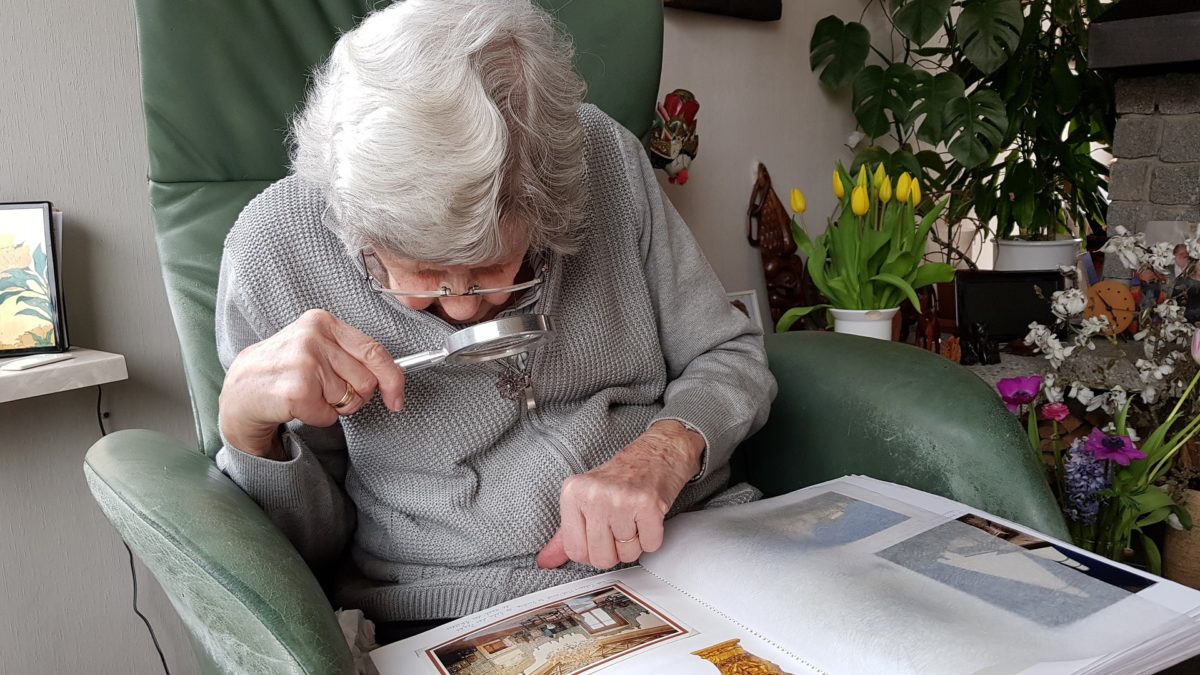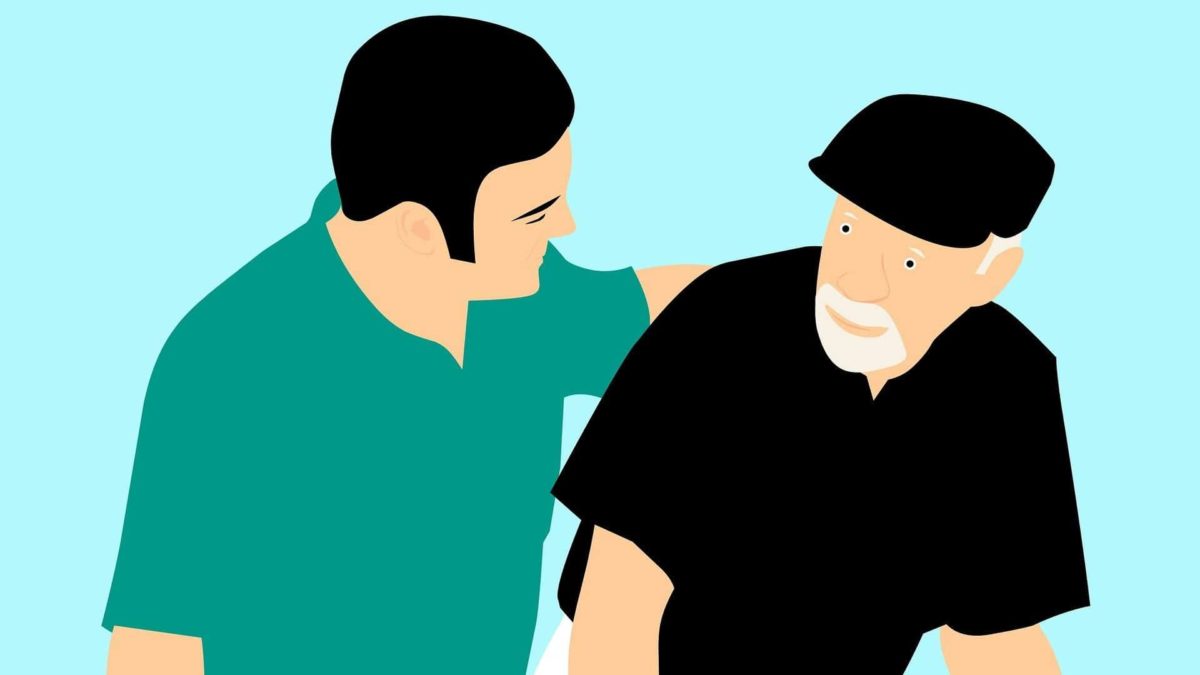“Last Sunday, my grandson brought my beef jerky. He knows that it was my favorite snack when I was his age, but I hadn’t had it for years,” said Richard.
“And then a weird thing happened…I found that it was too tough for me to chew.
I asked my son why it was too dry and too hard, and he said it was the same kind of beef jerky that you can buy anywhere. Then I started wondering if it was my problem.”
“Well Richard,” replied Anthony, Richard’s good friend. “You’re a tough man, but sometimes you gotta admit that you’re old, and not as tough as you used to be!
I’m not far from you. I haven’t been able to eat hard foods like beef jerky since my neck surgery, and Jane only has liquid food now because of her teeth. Now you won’t spot any crackers or nuts in our house. By the way, I have some really nice juicers if you want one.”
Just like Richard, Anthony and his wife Jane, and many older adults are facing the same situation – not being able to eat certain foods because of chewing difficulties.
In fact, chewing difficulties can also be ascribed to many other reasons, such as gum disease, physical changes from jaw/mouth surgeries, stiffness or pain in the jaw muscles, infections from radiation therapy, etc. These factors would greatly interfere with your eating, and there are risks that come afterward.
Risks Associated With Chewing Difficulties
Malnutrition is the most common outcome related to chewing difficulties. Generally speaking, many liquid foods such as soups, juices, and shakes are not able to provide enough nutrients and calories as foods that are dry and dense in their texture. A lack of macronutrients (proteins, fats, and carbohydrates) can cause harmful infection in seniors who already have compromised immune systems, and also increase the chance of developing dangerous heart arrhythmias.
In addition, improper chewing can elevate choking risks, which could be life-threatening. So cultivating good eating/cooking habits and eating the “right” foods become crucial at this point
Tips For Seniors with Chewing Difficulties:
– Drink Beverages/Soups
Drinking liquid could help moisten the food and make it easy to chew and swallow. It is better to drink beverages or soups than drinking water since these can provide extra energy and minerals with your regular meals. Note that sugar-free and low sodium beverages/soups is recommended, especially for seniors with cardiovascular disease or diabetes.
– Use Dentures
When the teeth don’t work anymore, look for the ally! A set of artificial teeth can work the as same as your old teeth, so letting your “old friends” retire and replacing them with new ones would be a good idea.
– Pace Your Consumption
A slow eater is always an elegant eater, and they are unlikely to choke. Cut your food into smaller chunks and let your fork rest on your plate between bites would be very helpful for your teeth in order to grind the food thoroughly. It also prevents acid reflux and engages all your senses while you eat.
Tips For Meal Planning:
– Follow Nutrition Guides
Even if there are many food groups you should avoid, it is still necessary to follow a nutrition guide to ensure both the variety and the balance of our diet is achieved. Check out the “Health Eating Food Pyramid” or “MyPlate Food Guide” for reference to food portions and types of foods we should include in our diet every day.
In brief, by the healthy eating principle, your diet should be composed of:
– 50 percent of vegetables and fruits
– 25 percent of grains
– 25 percent of proteins
– Use The Right Cooking Methods
Selecting easy-to-chew foods isn’t enough; changing the way we cook is also important, and it gives you more options of foods to add to your diet.
Try to add low-sodium liquid to moisten the foods, and use a food processor to soften them afterward.
Steaming and simmering will also help the food absorb liquid and become soft enough to eat while frying and grilling will take the water away from the food. However, for some vegetables that are moisture-rich, frying and grilling will still make them soft and easy to swallow. So next time your elderly parents use your wagyu beef to make beef stew, don’t laugh. They are choosing the right way to cook for themselves!
– Remove Seeds/Stones to Avoid Choking
When the teeth can’t process the food well, you will use the tongue. But for the foods that contain seeds, such as watermelon and grapes, our tongues are not useful to grind the seeds down. So it is important to remove the seeds before you eat to prevent choking or to avoid them altogether.
Here’s a chart of the food to avoid and choose for people with chewing difficulties.
Food To Avoid/Food To Choose:
Foods to Choose:
- Foods that are soft in texture, easy to chew and swallow.
- Foods that are chopped into bite-size” (no more than 2 cm in size), ground, mashed and moist
Foods to Avoid:
- Foods that are dry, hard, and stringy in texture.
- Foods that are sticky and gummy.
Avoiding certain food does not mean you can no longer taste the gourmet. Here are some recipes that CareStory recommends if you have chewing difficulties. Enjoy!
Recipes:
1. Pumpkin Sausage Soup
(Rich and satisfying. This is the perfect soup to enjoy in cold weather!)
Ingredients:
- 1 lb. Italian sausage
- 2 cups sliced fresh mushrooms
- 1 medium onion, finely chopped
- 4 garlic cloves, minced
- 32 ounces unsalted chicken stock
- 15 ounces pumpkin
- 1 tbsp. sugar or sugar substitute equivalent
- 1/2 teaspoon ground cinnamon
- 1/2 teaspoon ground ginger
- 1/4 to 1/2 teaspoon ground nutmeg
- 1/2 cup heavy whipping cream
- 1/3 cup cold water
- 1/3 cup cornstarch
- 2 cups shredded smoked cheddar cheese
Directions:
- Add oil to a soup pot or dutch oven. Add the onions and carrots, then cook them for 5 minutes as you stir them.
- Add salt, pepper, and chopped garlic to the vegetables.
- Break up the sausage into smaller pieces as it cooks in the pot. Make sure the meat is cooked well before you tilt the pot to the side and scoop out any extra fat.
- Add the rest of the ingredients to the pot and mix them well. Add water up to a boil and cook for 20 minutes.
- Add seasoning, and it is ready to serve.
2. Creamy Butter Mashed Potatoes
(It’s easy, it’s creamy, it’s good for any occasion.)
Ingredients:
- 5 lbs. Yukon gold potatoes
- 2 sticks softened unsalted butter
- 8 ounce sour cream
- 1/2 cup milk
- 1/2 cup cream
- Salt and ground black pepper
Directions:
- Cut the potatoes into small pieces to ensure they can all cook evenly.
- Boil potatoes in water until they are fork-tender.
- Drain potatoes and add in the cream, sour cream, and butter.
- Mash the potatoes with a potato masher until it’s smooth. Add milk for thinning.
- Add seasoning.
3.Tropical Oatmeal Smoothie
(It’s packed with fibers and vitamins, and a load of sunshine!)
Ingredients:
- 1/2 cup quick coats
- 1 peeled banana
- 1 1/2 cups unsweetened coconut milk
- 1 tbsp. lemon juice
- 1/2 teaspoon vanilla extract
- 3/4 cup frozen mango cubes
- 3/4 cup frozen pineapple cubes
Directions:
- Add the oats to the blender, and blend to a fine powder.
- Add banana, coconut milk, lemon juice, vanilla extract, and continue to blend.
- Add the mango and pineapple, and blend until smooth.
4. Peanut Butter Avocado Smoothie
(A one-minute drink that keeps you full and energetic for the whole day. Why not?!)
Ingredients:
- 1/2 cup peanut butter
- 1 1/2 cups milk
- 2 teaspoons honey
- Half an avocado
Directions:
- Blend the above ingredient in a blender until smooth.
- Enjoy!
5. Tiramisu
(Who can resist Tiramisu? If you are looking for a no-bake dessert, here it is!)
Ingredients:
- 9 ounces cream cheese
- 3 tbsp. milk
- 1/2 teaspoon vanilla extract
- 6 ounces frozen whipped toppings
- 1 cup coffee
- 1/2 cup sugar
- 10 1/2 ounces ladyfinger cookies
- 1 1/2 tbsp unsweetened cocoa powder
Directions:
- Beat cream cheese, sugar, and vanilla until smooth in a large mixing bowl.
- Soak ladyfinger cookies in coffee in a square container.
- Top the soaked ladyfingers with the creamy mixture.
- Layer with whipped toppings by using a spatula.
- Dust cocoa powder on top.
- Refrigerate for 5 hours. Serve cold.
References:
https://extension.okstate.edu/fact-sheets/nutrition-for-older-adults-chewing-swallowing-and-nutrition.html
https://thegeriatricdietitian.com/nutrition-care-dental-health-in-older-adults/
https://www.unlockfood.ca/en/Articles/Dental-health/Managing-Chewing-Problems.aspx
















